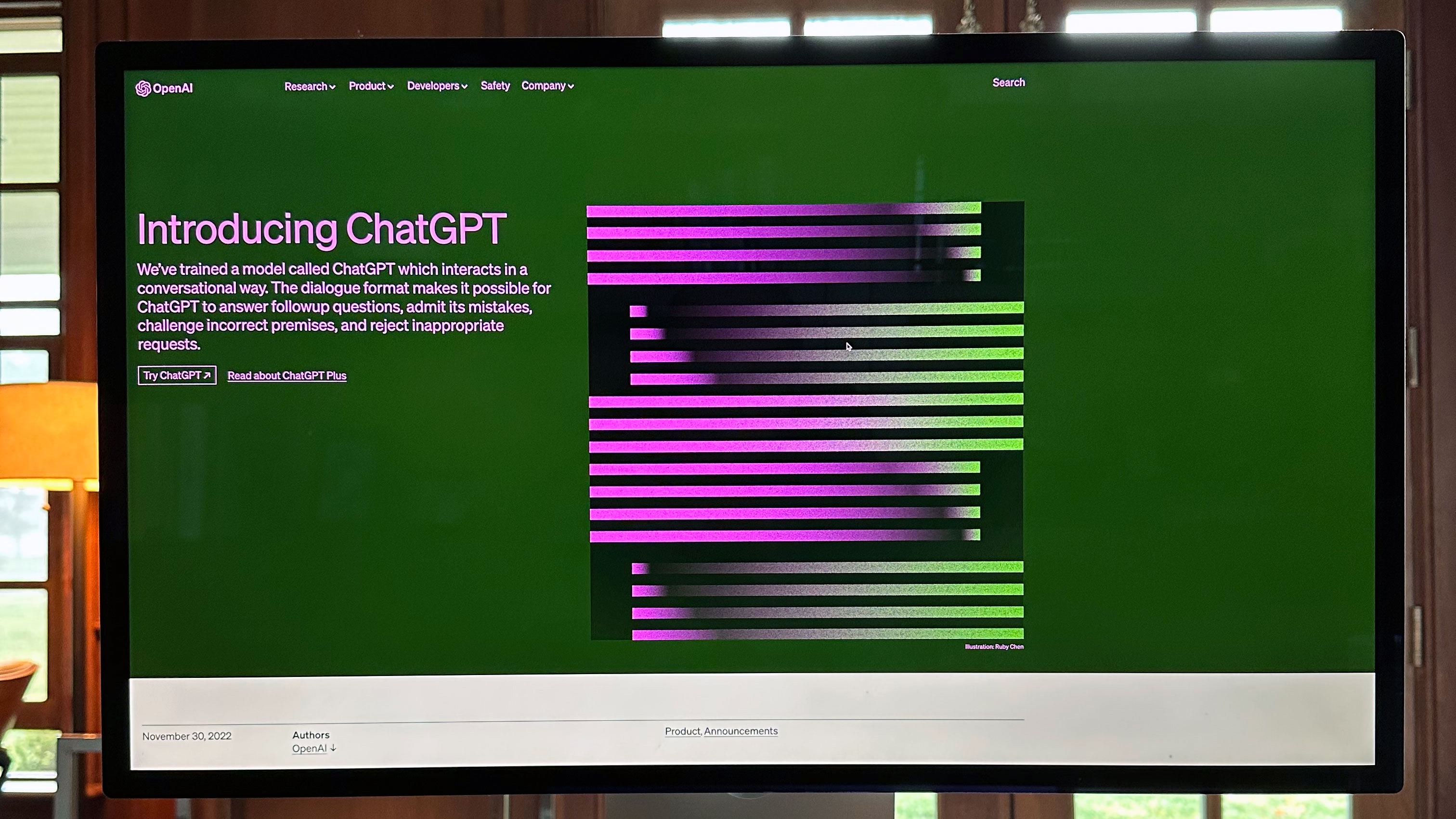- Daily Zaps
- Posts
- ChatGPT search engine?
ChatGPT search engine?
Rabbit R1 flop, Search.chatgpt.com, Sam Altman interview, AI facial recognition, and more
Hello everybody. Welcome to Daily Zaps.
Here’s what we got for ya today:
🗣️ ChatGPT search engine?
👎 Another AI device flops
🤖 "GPT-4 is the dumbest model..."
🚫 Microsoft bans AI facial recognition for US police
Let’s get right into it!
STARTUPS
ChatGPT search engine?
OpenAI is rumored to be launching a new search engine that could compete with Google, which has dominated the search market for over two decades. This new engine will use ChatGPT technology to provide a more interactive search experience, similar to Perplexity and Google Gemini, allowing users to ask questions in natural language.
OpenAI's CEO, Sam Altman, believes that this could revolutionize how we search for and interact with information online, moving away from the traditional model of ads and links to a more intuitive system. The goal is to integrate real-time data more deeply, making the search results more relevant and up-to-date.
STARTUPS
Rabbit R1 AI box revealed to just be an Android app
The Rabbit R1, a device touted as a smartphone replacement that only uses voice commands and has no app functionality, has been largely criticized for not solving any real consumer needs, suffering from poor battery life, and lacking essential features.
The device, which runs on the Android Open Source Project (AOSP) without Google's proprietary elements, was recently highlighted by Android Authority's Mishaal Rahman, who managed to run the Rabbit R1 software on a Pixel 6.
This revelation sparked displeasure from Rabbit Inc., who argued against the use of third-party emulators. Adding to the product's woes, popular tech reviewer MKBHD also criticized the device as being “barely reviewable”.
CONTENT BY DROPCHAT
Wine GPT Chatbot (Digital Sommelier)
Test drive a chatbot designed specifically to enhance your dining experience by expertly suggesting wine pairings for any meal. This digital sommelier is accessible through a simple chat interface, making it incredibly user-friendly for both wine novices and connoisseurs alike.
Whether you're planning a romantic dinner, a family gathering, or just a casual meal, this chatbot can instantly provide you with wine options that perfectly complement your menu, taking into account the flavor profiles and intensity of your dishes.
The chatbot powered by Dropchat, utilizes a database of wine knowledge, integrating culinary insights and sommelier expertise to offer personalized wine recommendations. Test it out with sample questions below.
What white wine pairs well with chicken?
What pairs well with steak?
What's a good wine option for a chocolate dessert?
STARTUPS
“GPT-4 is the dumbest model any of you will ever have to use”
During a recent Q&A seminar at Stanford University, OpenAI's co-founder and CEO Sam Altman discussed the future of AI, particularly focusing on the evolution and costs of generative AI models like ChatGPT. Altman highlighted that while the operational costs for developing these models, such as GPT-4, are substantial and growing, he views the investment in these powerful tools as critical for innovation and useful for society.
He humorously remarked on the current limitations of GPT-4, calling it the "dumbest model" users will ever encounter, indicating a commitment to continual improvement and iteration of AI technologies. Altman’s approach emphasizes the importance of shipping early and allowing society to "co-evolve" with AI, rather than perfecting AI in isolation.
BIG TECH
Microsoft bans AI facial recognition for US police
Microsoft has updated the terms of service for its Azure OpenAI Service to enforce a clearer ban on U.S. police departments using generative AI for facial recognition, including on mobile cameras like body cams and dashcams. This prohibition now extends to any law enforcement worldwide against using real-time facial recognition in uncontrolled environments.
The revision follows controversy surrounding Axon's new product that uses OpenAI’s GPT-4 model to analyze body camera audio, which raised concerns about potential inaccuracies and biases. While the ban strictly applies to the U.S., it does not restrict facial recognition with stationary cameras in controlled settings or international police use.
The policy change aligns with Microsoft and OpenAI’s cautious approach to AI in law enforcement and defense, as seen in their ongoing collaborations with the Pentagon and other government agencies.
In case you’re interested — we’ve got hundreds of cool AI tools listed over at the Daily Zaps Tool Hub.
If you have any cool tools to share, feel free to submit them or get in touch with us by replying to this email.
🗞 Other tech tidbits
🗣️ Feedback
How much did you enjoy this email? |







/cdn.vox-cdn.com/uploads/chorus_asset/file/25263501/STK_414_AI_A.jpg)


/cdn.vox-cdn.com/uploads/chorus_asset/file/11423503/acastro_180524_1777_tesla_0001.jpg)